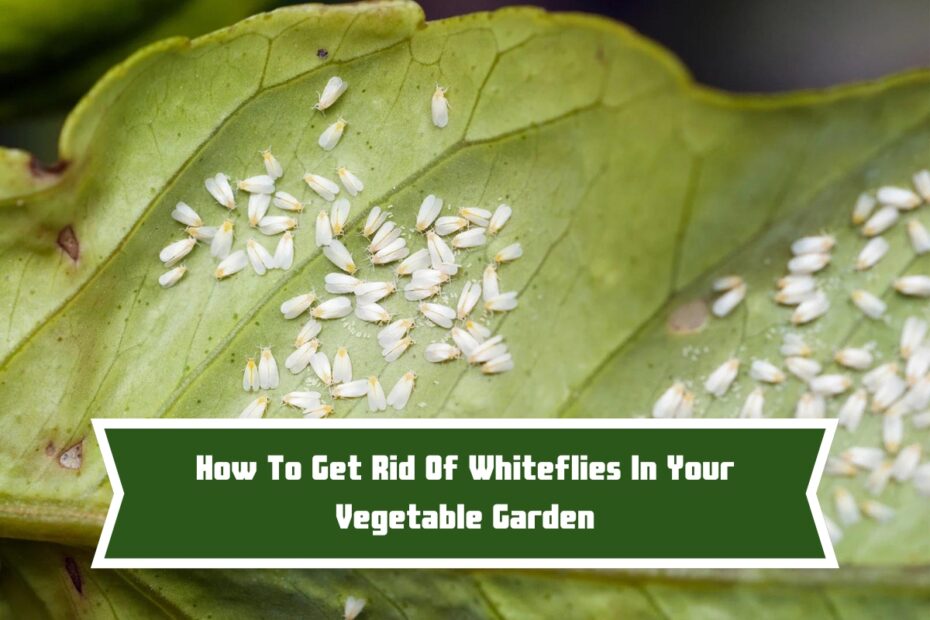Whiteflies are an extremely little insect that feeds on the sap of plants and can do a great deal of damage to a vegetable garden. Through their consumption of the undersides of leaves, they cause damage to plants and may also transfer illnesses.If your vegetable garden is plagued by a large number of whiteflies, this comprehensive guide will assist you in eliminating them and ensuring the safety of your plants.
1. Identify the Infestation
It is important to be sure that whiteflies are the problem before doing anything else. Keep an eye out for these signs:
Little white bugs that look like moths and fly around plants when they are startled.
Honeydew that sticks to leaves and can cause sooty mould to grow.
fading or turning yellow leaves, especially on the undersides where whiteflies like to hang out.
2. Use Physical Control Methods
Start with methods that do not involve chemicals to get rid of whiteflies:
Yellow Sticky Traps: Put yellow sticky traps close to the plants that are sick. Whiteflies will stick to the traps because they like the colour yellow.
Removal by Hand: If there are not many whiteflies on the plants, you can use your hands or a handheld cleaner to get rid of them.
Water Spray: To get whiteflies off the leaves, use a strong jet of water. Not only the top of the leaves, but also the bottom, where they like to hide.
3. Introduce Beneficial Insects
Bringing in natural predators can help keep whitefly numbers under control:
This type of beetle eats whitefly eggs and larvae.
Lacewings: Their larvae eat whiteflies like there is no tomorrow.
Encarsia formosa is a parasite wasp that only eats whiteflies.
Putting these good bugs into your garden will help it stay in balance.
4. Apply Insecticidal Soap or Neem Oil
If the infection is bad, you might want to try organic treatments:
Insecticidal soap: This breaks down the whiteflies’ top covering, which makes them lose water and die. Make sure to spray the soap right on the bugs, especially where the leaves are.
Neem Oil is an organic bug killer that stops whiteflies from reproducing. Use neem oil in the early morning or late evening to keep leaves from getting burned.
5. Implement Cultural Control Practices
Good planting habits can help stop future whitefly infestations:
Get Rid of Infected Plants: If a plant has a lot of whiteflies on it, it is best to get rid of it so the bugs do not spread to other plants.
Use reflective mulch. Whiteflies will stay away from reflective mulch because it confuses them.
Keep plants healthy: Feed and water your plants regularly to help their natural defences against pests.
Also read:-Growing Hardy Geraniums – The Ultimate Flowering Perennial For Your Flowerbeds!
6. Monitor and Repeat Treatments
Always look over your plants for whitefly signs. If you see something new, do the steps above again. To keep whiteflies under control, you need to keep an eye on them and move quickly.
7. Consider Chemical Control as a Last Resort
Chemical insecticides may be needed if nothing else works and the problem is very bad. But do not use them too much, and pick ones that are safe for veggies and do not hurt beneficial insects too much.
